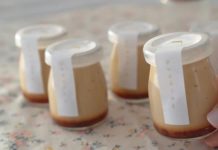In the scorching summer, air conditioning is an essential item to provide comfort and a good night’s sleep for your whole family, especially on excessively hot days. Without an air conditioner, you will have difficulty sleeping and always feel tired. If there are elderly people or young children in the family, an air conditioner is even more necessary to prevent the heat from affecting their health. However, using an air conditioner improperly can also cause health problems in the hot season.

According to Dr. Mai Viet (National Nutrition Institute), many families turn on the air conditioner but still feel uncomfortable, especially in the bedroom. This can cause fatigue, stress, shallow sleep, insomnia, and increase the risk of heart and lung related diseases. If the room where the air conditioner is regularly turned on has young children, elderly people, or long-term patients, or if insects such as ants, mosquitoes, or other bugs frequently enter the bedroom, it needs to be addressed immediately.
With these simple tips, you can avoid countless illnesses for your family and improve their sleep and overall well-being in the summer.
1. Place salted lemons with eucalyptus oil in the air-conditioned room
Dr. Mai Viet suggests that you try cutting four lemons in half, add a pinch of sea salt in between, and a drop of eucalyptus oil. Place the lemon halves on a plate and put it next to your bed or in a corner of the room where you feel most comfortable.
This method is believed to have many beneficial effects. “This trick helps prevent and support the treatment of respiratory problems such as cough, wheezing, asthma, difficulty breathing, bronchitis, etc. Families with young children should not overlook this,” says Dr. Mai Viet.

Placing salted lemons with eucalyptus oil in the air-conditioned room helps prevent and support the treatment of respiratory problems such as cough, wheezing, asthma, difficulty breathing, and bronchitis.
During the prolonged hot summer, staying in an air-conditioned environment for a long time can weaken children’s immunity. Conditions such as cough, wheezing, runny nose, etc. are difficult to avoid. Without preventive measures, the risk of respiratory infections, bronchitis, and even pneumonia in children is possible. Dr. Mai Viet advises that you try this method to actively prevent diseases for your children and your entire family.
It is worth noting that at the moment, dengue fever is still rampant in many provinces and cities. In hot weather, mosquitoes are likely to breed and affect the quality of your sleep. Placing lemons in this manner will effectively repel mosquitoes.
In addition, the refreshing scent of lemons can also be considered a natural air purifier. Adding eucalyptus oil enhances this effect. They help keep the room well-ventilated, eliminate odors, and improve your sleep. Regardless, this is a small and inexpensive trick that not only helps prevent diseases but also improves the quality of life for your family.

2. Place a bowl of water in the air-conditioned room
This is a very useful tip that many families currently apply to maintain the optimal humidity level in the air.
Instead of dehumidifying the room, the air conditioner will draw moisture from the bowl of water. This helps prevent dry skin. The air will not be dry and lacking moisture, which facilitates smooth breathing and prevents respiratory diseases.
3. Place a damp cloth in the air-conditioned room
Soak a towel in a mixture of water, white vinegar, and crushed ginger. After about 10 minutes, squeeze out the excess water and hang the towel inside the air-conditioned room. This trick helps naturally humidify the room, improves dry skin, prevents colds, eliminates odors, and repels insects. In hot days, this method will significantly reduce the risk of mosquito bites.
Source: Tổ Quốc
































